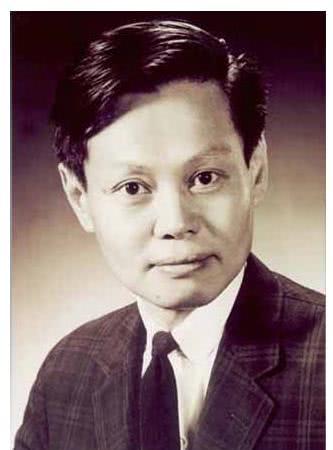In 1971, Yang Zhenning, who stayed in the United States, returned to China for the first time, and he offered to visit his mentor Ye Qisun, but this request was rejected because it was in a special historical period at that time.

When it comes to Ye Qisun, many people may not know, but if it comes to his students, it must be a household name. Qian Sanqiang, the "father of the atomic bomb," Qian Xuesen, the "father of missiles," Peng Huanwu, the "father of the hydrogen bomb," Qian Weichang, the "father of mechanics," Wang Daheng, the "father of optics," and Wang Ganchang, the founder of Chinese nuclear physics, were all his students.
Ye Qisun is one of the main founders and founders of China's physics department, and also the founder of China's magnetics discipline, but now few people know his existence.
Ye Qisun was gifted and intelligent, and was admitted to Tsinghua Xuetang at the age of 13, becoming the first batch of students in Tsinghua Xuetang. At the age of 20, he was admitted to the Gengzi Indemnity to stay in the United States as a public fund student, and went to the Physics Department of the University of Chicago in the United States to study under the Nobel Prize winner Bridgeman.
At the age of 23, he and his supervisor collaborated on measuring the world's most accurate Planck's constant h-value through many experiments, which was quickly recognized by the scientific community after it was published in the Proceedings of the Academy of Sciences and the Journal of the Optical Society in the United States, and the data was used by the physics community for 16 years.
At the age of 25, Ye Qisun received his Doctor of Philosophy degree from Harvard University.
At the age of 27, he adhered to the concept of "only science can save China", returned to Tsinghua University, and then founded the Department of Physics.
At the age of 31, he founded the School of Science at Tsinghua University, which includes six departments: arithmetic, physics, chemistry, biology, psychology and geoscience.
Ye Qisun said: "In addition to cultivating scientific talents who have learned to apply, if we want to make China's academic independence, we must establish a center for research and science." ”
The Faculty of Science was established, but teachers could not be hired. He noticed Wu Youxun, who was then the head of the Physics Department of the Fourth National Sun Yat-sen University (the predecessor of Nanjing University), and he visited Wu Youxun many times with perseverance, and in order to make Wu Youxun feel at ease in his studies, he let Wu Youxun, who was not as capable as himself, serve as the director of the Department of Physics and the dean of the School of Science at Tsinghua University, not only the position was high, but also the salary was set higher than himself.
Hua Luogeng, known as the "master of mathematics", was also discovered and cultivated by Ye Qisun. At that time, Hua Luogeng only had a junior high school education, but Ye Qisun saw that Hua Luogeng was a talented potential stock, so he invited him to teach in the Department of Mathematics at Tsinghua University, and then won him the opportunity to study at Cambridge University. It can be said that without Ye Qisun's Bole, Hua Luogeng's thousand-mile horse may not have today's achievements.
Hua Luogeng himself also said: "I have been loved and loved by him all my life." ”
Ye Qisun's love and care was not only given to Hua Luogeng, but also to many, many students.
Nobel laureate Li Zhengdao, it is also because of Ye Qisun's care and love that he will achieve extraordinary achievements.
At that time, Li Zhengdao was a student of the Physics Department of Southwest United University, ye Qisun was his teacher, and he found that every time he took an electromagnetic science class, Li Zhengdao took other books to look at himself, did not listen carefully to the class, let him answer the question, and always answer the question like a stream.
So Ye Qisun told Li Zheng: "You can not come to my class in the future, because the reference books you read are more intelligent than mine, but the experimental class must come." “
At that time, Ye Qisun felt that Li Zhengdao was a rare talent in physics. In 1946, he recommended Lee Zhengdao, who was still a sophomore, to go to the United States to study for a doctorate. This caused a lot of turmoil in the college, and some people questioned Ye Qisun: "How can a sophomore He De get the qualification for a doctoral degree?" “
No matter what the outside world said, Ye Qisun still insisted on his decision.
In 1957, Li Zhengdao and Yang Zhenning jointly won the Nobel Prize in Physics, and they made great contributions to the development of science and technology and education in China.
In 1971, when Yang Zhenning returned to China, it was a special historical period, Ye Qisun was attacked and monitored, so the two teachers and students did not see each other.
After the founding of the People's Republic of China, many of the 23 recipients of the "Two Bombs and One Star" Meritorious Medal were his students, so some people called him "the master of the master". According to statistics, 9 of the 23 meritorious scientists among the "two bombs and one star" heroes are ye Qisun's disciples.